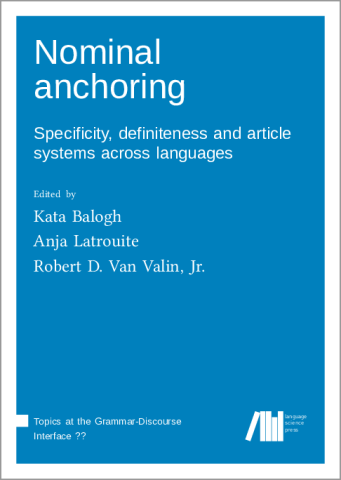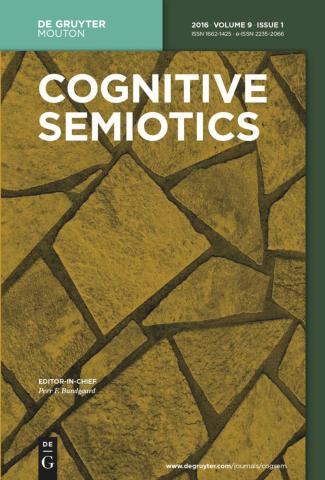Eve Danziger
Ph.D. University of Pennsylvania 1991
M.A. University of Toronto 1982
B.A. York University 1979
Specialties
Linguistic relativity; spatial language and spatial cognition, cross-cultural philosophies of mind, conversational gesture. Mayan linguistics; morpho-syntactic expression of verb argument structure, linguistic prehistory; social organization and social identity.
Hello and welcome, from Eve Danziger, Professor of linguistic anthropology at the University of Virginia!
Although I have lived and worked most of my life in Europe and North America, the very first languages that I spoke were Indonesian and Javanese. Unfortunately I don't speak those languages now -- we left Indonesia when I was still very young. But I've always wondered whether speaking them into adulthood would have made the world seem like a different place to me. I took that question into my working life, and became a linguistic anthropologist who studies, writes and teaches about the principle of linguistic relativity. This principle starts from the obvious facts that (1) there is usually more than one way to think about any problem, and (2) the particular approach that a person takes depends on his or her past experience. Linguistic relativity proposes that speaking a particular language is one of the kinds of experience that is relevant to selecting strategies in problem-solving. For example, if your language obliges you to state the cardinal direction (north south east west) every time you talk about something that moves, you might be particularly good at solving spatial problems. Speaking a particular language could make some kinds of strategies and solutions seem more natural than others, even on an unconscious level. This would mean that we could learn about alternative ways of approaching the external world by studying and learning other languages. My publications in the field of linguistic relativity make use of methods from linguistics, cognitive science and ethnography. They include studies of kinship, spatial representation, and spontaneous gesture.
My interest in linguistic relativity has prompted me to learn as much as I can about a language that is very different from the languages of Europe: the Mopan Maya language and its relatives in the Mayan language family. These are living Native American languages spoken in Mexico, Belize and Guatemala. Today's speakers are descendants of the famous Ancient Maya who left their pyramids and hieroglyphic inscriptions all over the same territory. I have an ongoing interest in the primary grammatical description of Mopan and its relatives, and I am also active in exploring the contribution that linguistics can make to the reconstruction of Mesoamerican prehistory.
One of the most interesting things that I have learned from traditional Mopan speakers is that, for them, speech has a direct effect on the cosmos, regardless of what the speaker may think, intend or ‘mean’ as he or she speaks. Profound questions about the nature of representation, and about the cultural universality of its mechanisms, arise from this fact. The comparative study of cultural philosophies of language becomes another way in to discovering the effects of culture on the human mind. Once we know that mentalism is not a necessary component for a cultural philosophy of language, for example, we can ask what are the historical factors (Christianity? literacy? social mobility?) that have led to the development of mentalist philosophies where they do exist. We can also ask how people in different parts of the world deal with the ambivalent possibilities for well-intentioned falsehood in all sorts of artistic and social domains. We can in the end, and returning to the question of linguistic relativity from a new perspective, investigate the possibility that different philosophies of language and/ or mind may have consequences for the psychological development of individuals. These and related questions constitute one of the most active areas of my current research.
I welcome inquiries from prospective graduate students whose interests intersect with my own.
Selected Publications
2020 (with Ellen Contini-Morava). Referential Anchoring without a Definite Article: The Case of Mopan (Mayan). Nominal Anchoring: Specificity, Definiteness and Article Systems Across Languages., Kata Balogh, Anja Latrouite & Robert Van Valin Jr. (eds.), pp. 81-113. Berlin: Language Science Press. https://zenodo.org/record/4049683
2018 Contrasting Attention to Mutual Knowledge in English and Mopan Mayan Conversation: Schooling, Orality and Cultural Cosmology. Cognitive Semiotics 11(1). Article number 20180004 https://doi.org/10.1515/cogsem-2018-0004
2017 Toward an Anthropology of Intersubjectivity: Comments on Alessandro Duranti The Anthropology of Intentions. Book symposium, HAU Journal of Ethnographic Theory 7(2): 451-455.
2013 Conventional Wisdom: Imagination, Obedience and Intersubjectivity. Language and Communication 33(3): 251-262.
2013 On Husband-Borrowing: Ancient Maya Marriage Practices and Preferences. Reconstructing Kinship. Patrick McConvell and Rachel Hendery (eds.), pp. 91-122. Salt Lake City, UT: University of Utah Press.
2011 - Distinguishing Three-Dimensional Forms from Their Mirror-Images: Whorfian Results from Users of Intrinsic Frames of Linguistic Reference. Language Sciences 33 (6):853-867.
2011 - Once More with Feeling: A Forbidden Performance of the Great Speech of the Mopan Maya. Anthropological Quarterly 84 (1):121- 40.
2010 - On Trying and Lying: Cultural Configurations of the Gricean Maxim of Quality. Intercultural Pragmatics 7 (2):199-219.
2010 - Deixis, Gesture and Cognition in Spatial Frame of Reference Typology. Studies in Language 34 (1):167-185.
2008 A Person, a Place or a Thing? Whorfian Consequences of Syntactic Bootstrapping in Mopan Maya. Crosslinguistic Perspectives on Argument Structure: Implications for Learnability. Melissa Bowerman and Penelope Brown (eds.), pp. 29-48. Mahwah, NJ: Lawrence Erlbaum Associates.
2001 - Relatively Speaking: Language, Thought and Kinship in Mopan Maya. Oxford Studies in Anthropological Linguistics. Oxford: Oxford University Press USA.
1998 - Getting Here from There: The Acquisition of Point of View in Mopan Maya. Ethos: Journal of the Society for Psychological Anthropology 26 (1):48-72.
1996 - Split Intransitivity and Active-Inactive Patterning in Mopan Maya. International Journal of American Linguistics 62 (4):379-414.
1996 - Parts and their Counter-Parts: Social and Spatial Relationships in Mopan Maya. Journal of the Royal Anthropological Institute (N.S.), incorporating MAN 2 (1):67-82.


